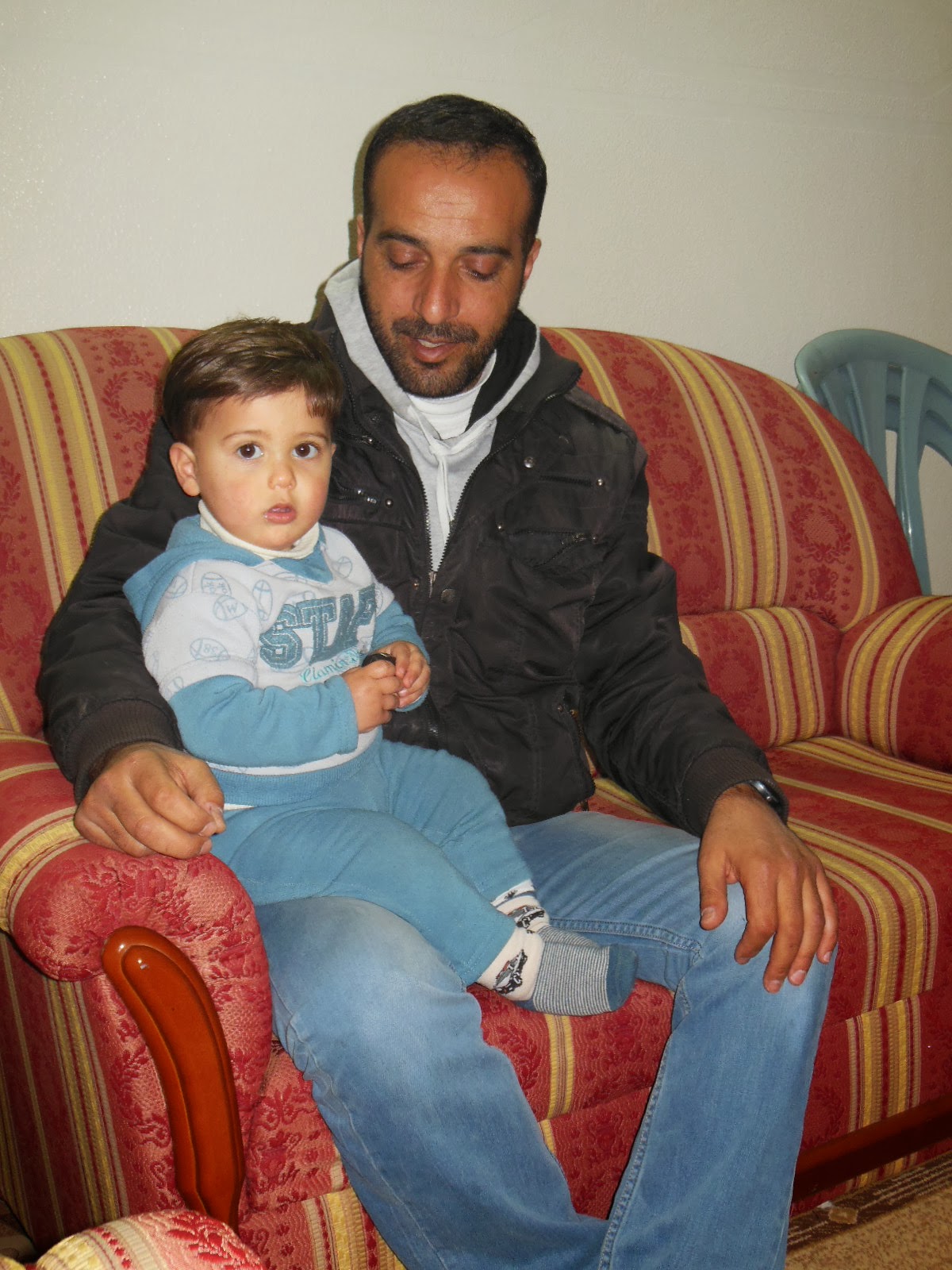 |
| Muawya and son Adam |
A few weeks ago, Muawya, our beloved driver-translator in
Tulkarm, posted on Facebook that the Tulkarm EA office would be closed when
Team 50 (then in residence) left. I read
that post in disbelief – and shed tears.
I was crying not only for the end of an era, and for all the memories I
had left in Tulkarm, but for the people I had known and loved there!
I cried for Muawya – who would go back to driving his
taxi without knowing that his customers included a group of internationals who
cared passionately about the well-being of his family and his nation. I cried for the women of Shufa, with whom I’drunk tea and eaten fabulous Palestinian cuisine, while they practiced their
English and we all laughed together. I
cried for Ahmed, whose village of Sabastiya was but one of many villages
plagued by settler violence, yet who always had a ready smile and time to show
off the historical beauty of his community.
 |
| Agricultural gate through which farmers and shepherds must pass |
I cried for the farmers and shepherds, forced to spend
countless hours in long lines to cross through agricultural gates so they could
tend their crops – and for school children whose education was routinely
interrupted by the time they spent going through the checkpoints between their homes and their
schools. And I cried for the workers,
who had to swallow their pride to pass through the inhuman Taybe/Ephraim
checkpoint daily – and then to further subjugate themselves to Israeli
employers on the “other side,” who treated them almost as badly as the soldiers
at the checkpoints.
The “official” announcement of the Tulkarm closing from
the EAPPI office stressed that the placement was NOT being closed, but that the
Jayyus team would “now be responsible for Tulkarm priority areas.” The announcement went on to explain that,
“This shift is the result of several years of feedback from EAs and
beneficiaries, and discussions with EAPPI’s National Coordinators and Local
Reference Group.”
I understand the office’s position – I really do. There are only so many people who are willing
to take three months out of their lives and live side-by-side with the
Palestinians, with the physical and emotional hardships that are part of the
“job description.” And I understand that
EAPPI wants to put a team in the Jordan Valley – where anyone who reads even
American media knows that serious problems have been brewing for quite a while.
 |
| Soldiers detain a young boy |
Still, I wonder.
When I was there – less than a year ago – both the Jayyus team and the
Tulkarm team (not to mention the other five teams!) were pretty busy – and I
understand that things have “heated up” in the time since. More settler violence, more destruction of
homes and crops, more soldier harassment – including of children – more human
rights violations to observe and report on, more “accompanying” needed all
around!
Sometimes there are no answers. Sometimes, I just put words on paper to more
clearly express the questions – and my feelings about them! I understand that Team 50, the last team to
serve Tulkarm (on a full-time basis, anyway), has had their farewell party –
and that Team 51 will be heading in different directions. And, although my “farewell party” was last
April, I haven’t yet truly said “goodbye” to Tulkarm.
 | |
| Sunset over the Tulkarm mosque near where I lived |
It will remain in my heart – and in my soul. And when next I return to Palestine, I will
go back and visit the friends I made there – and the places that I loved! Pray for them – and for all the Palestinians
who continue to suffer!!


